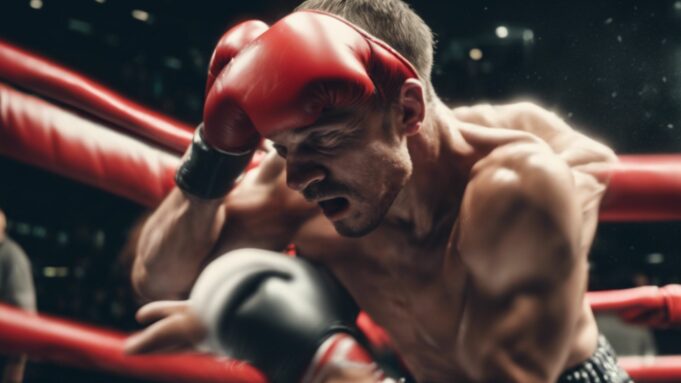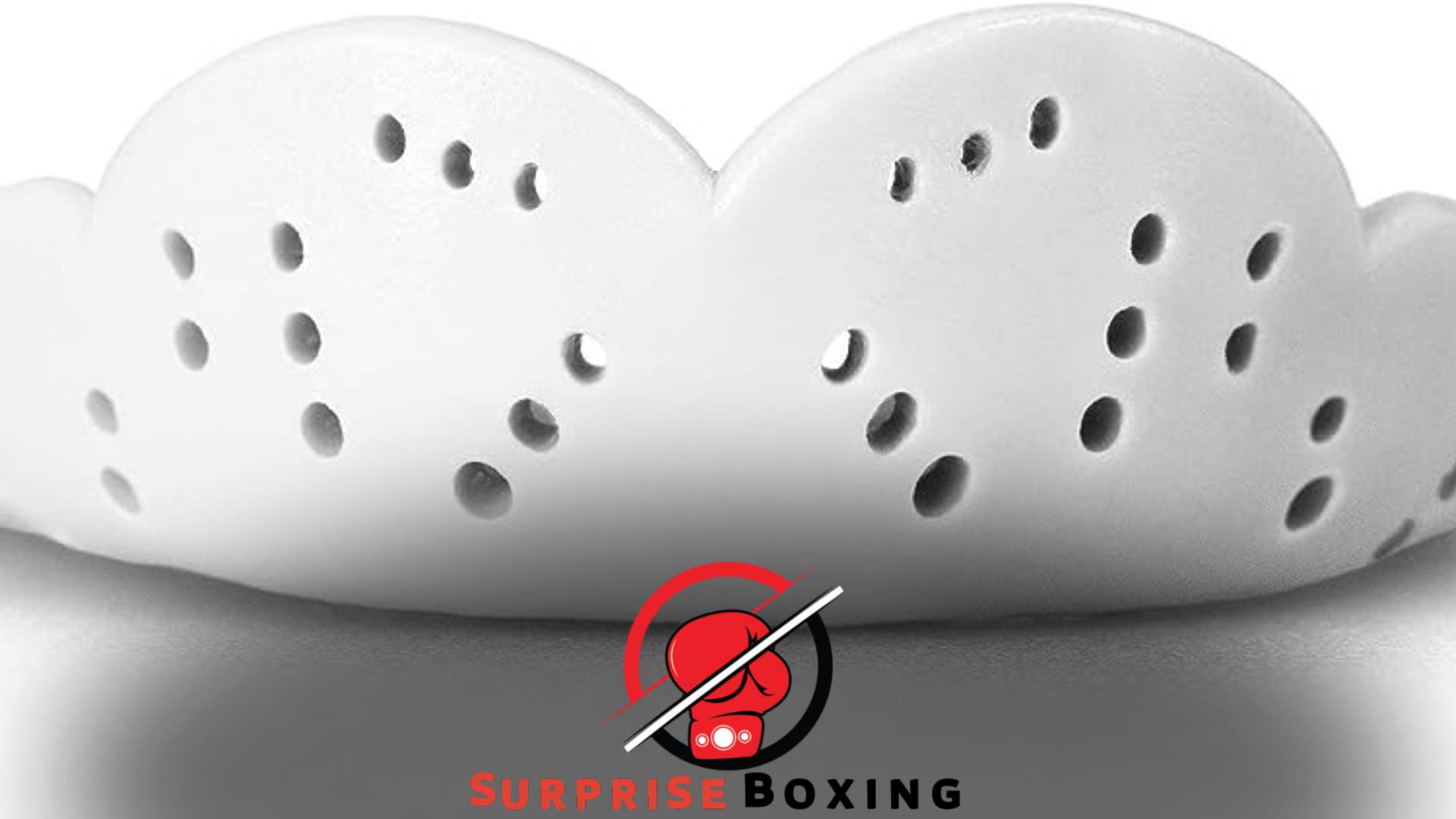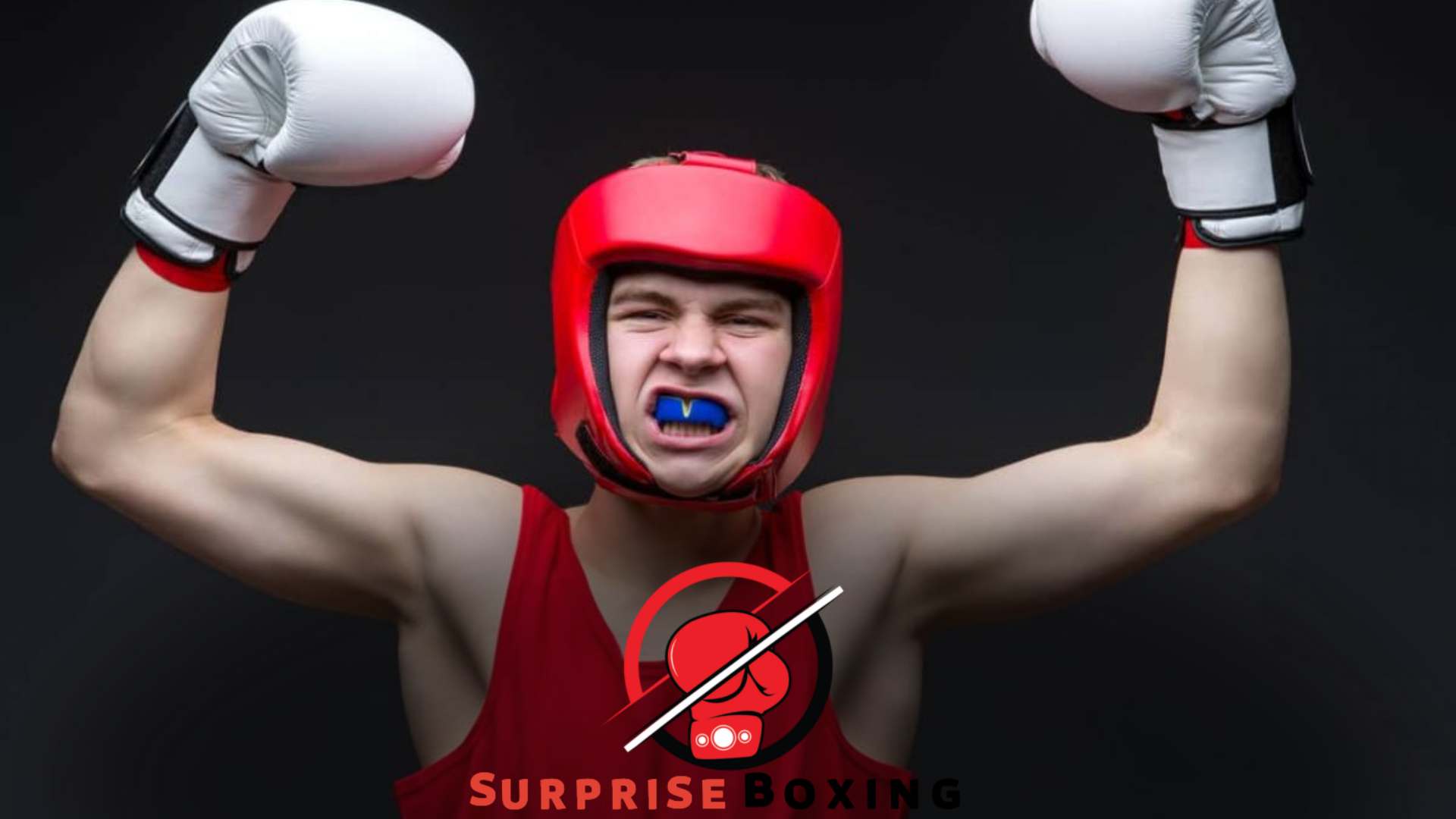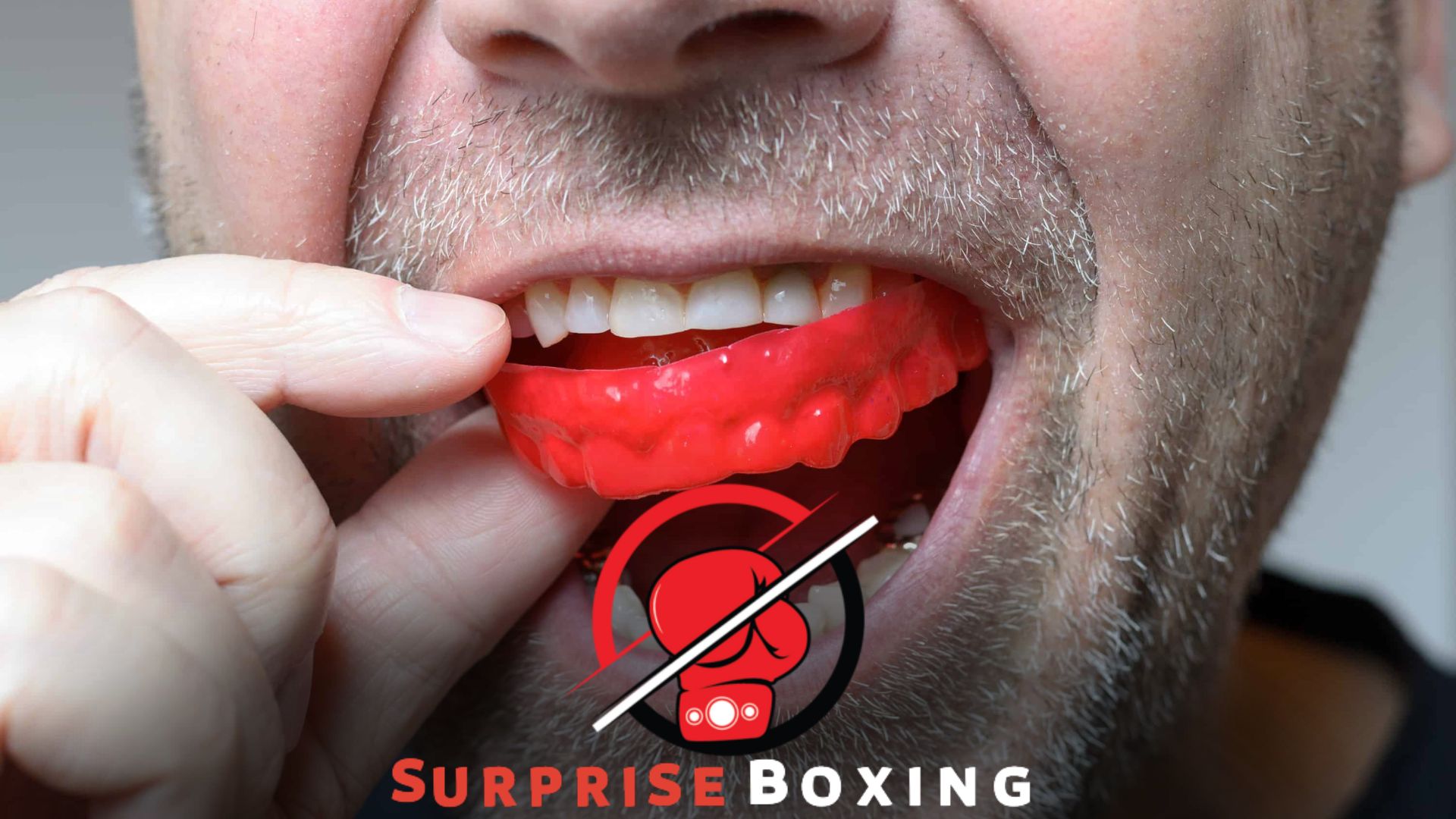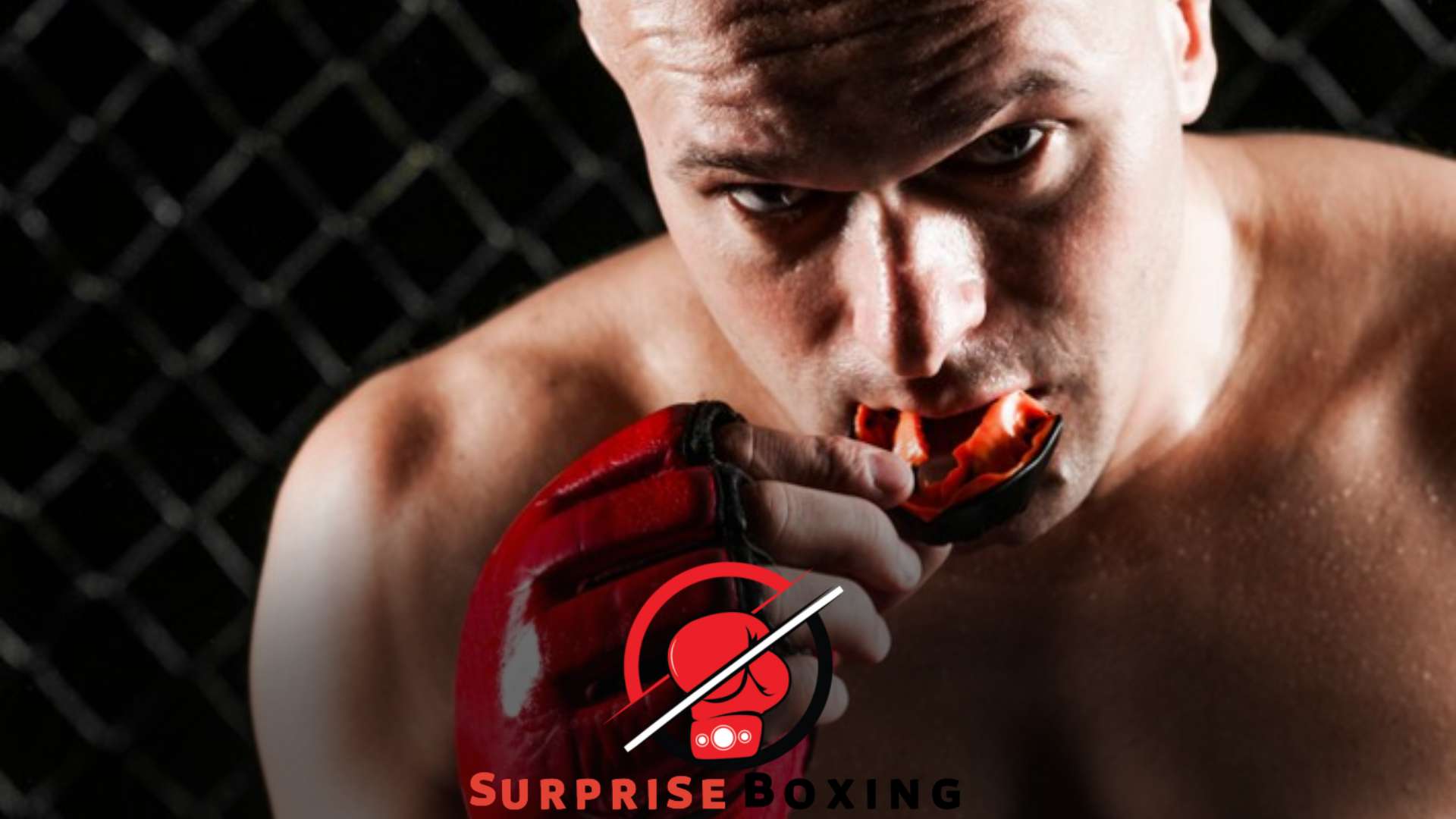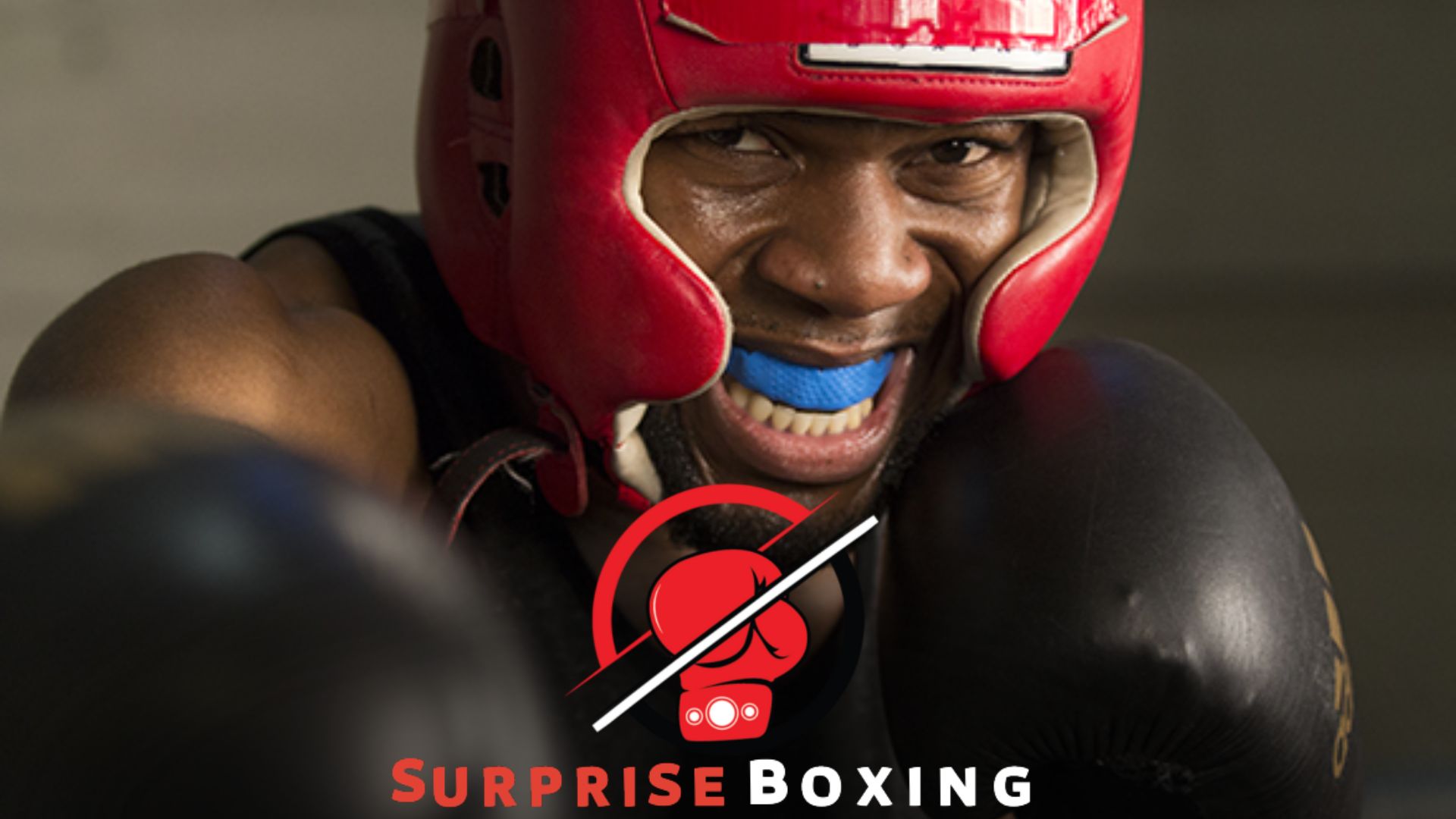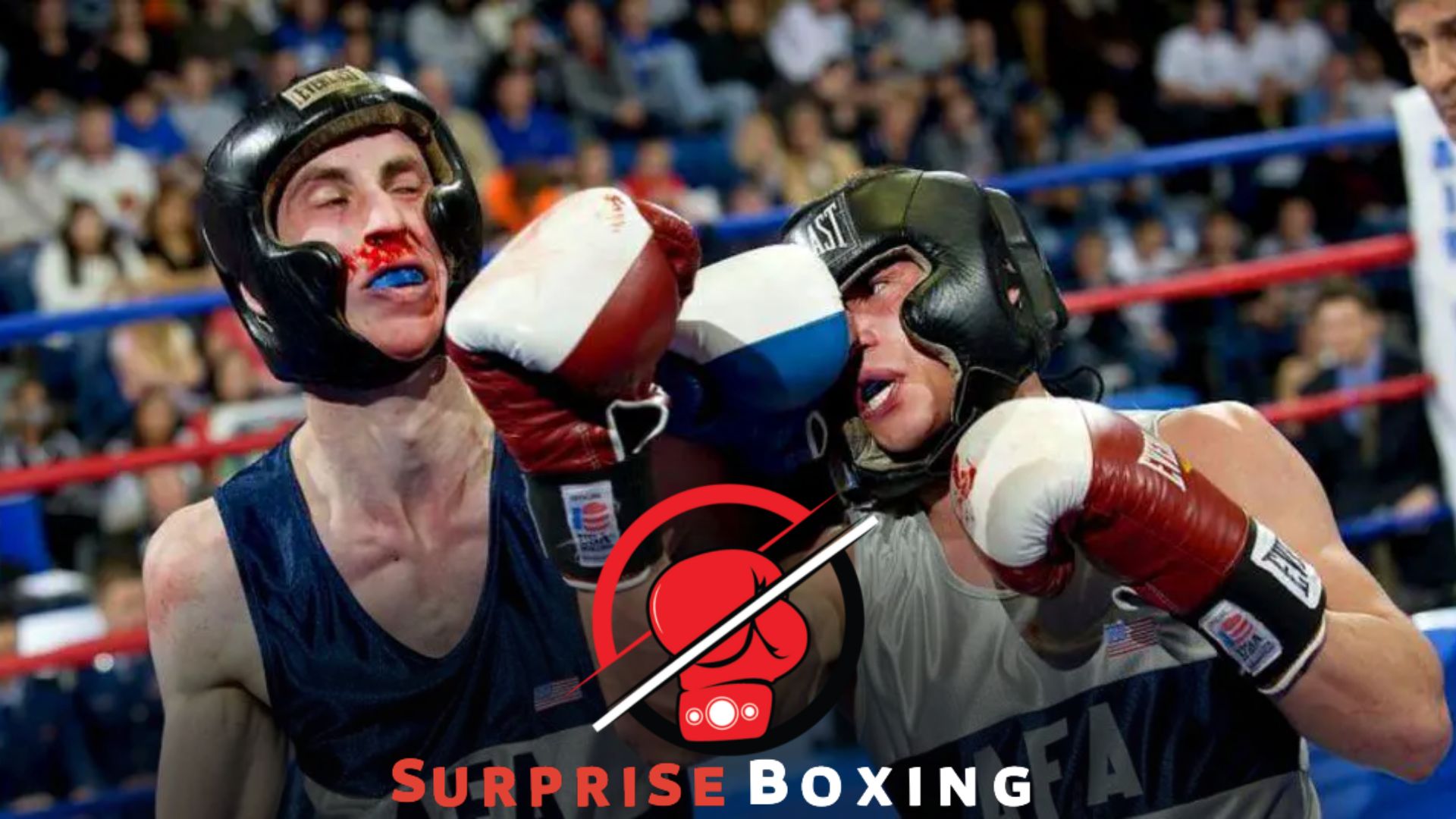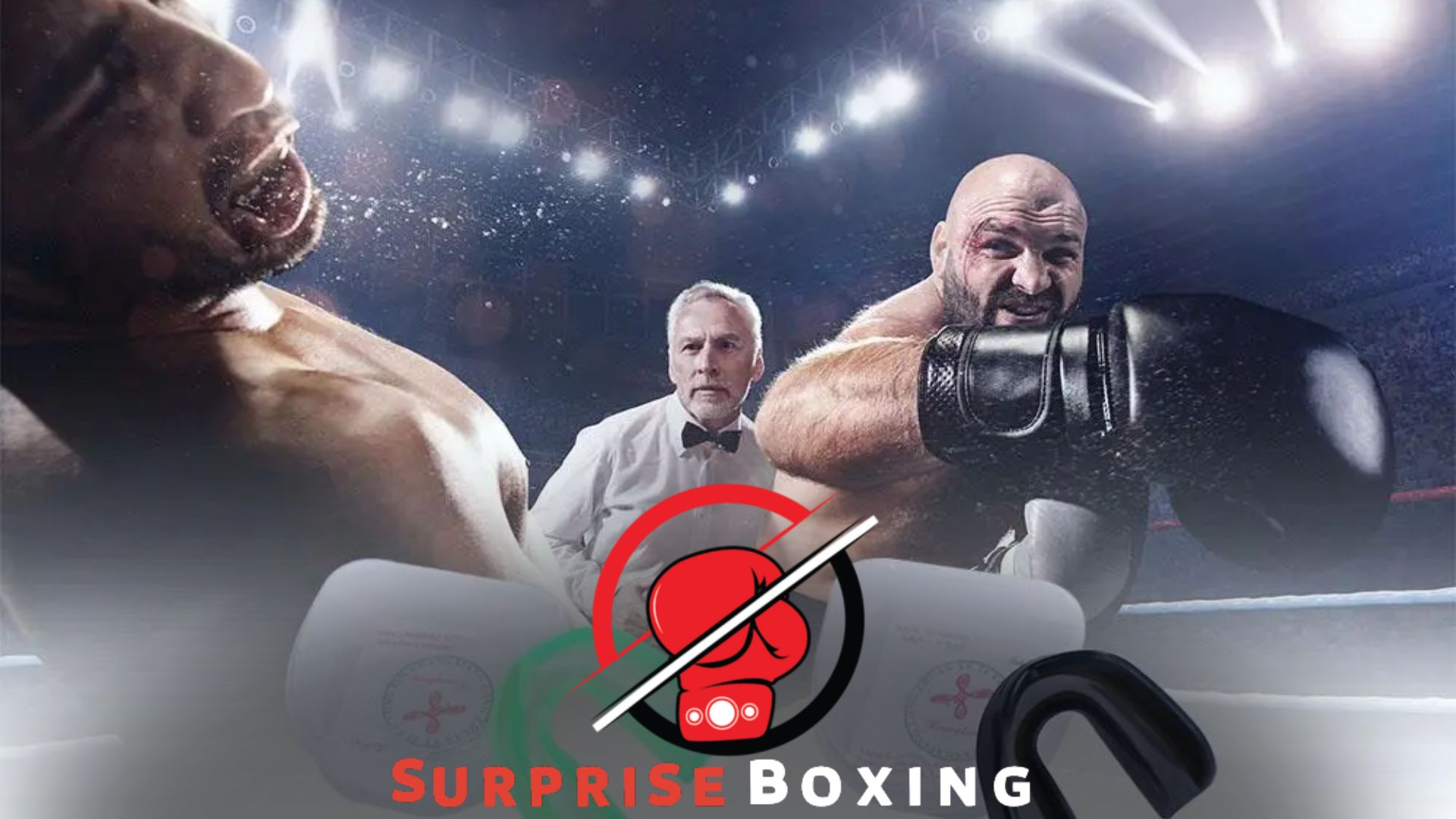Yes, it is not recommended to spar without a mouthguard in boxing. Boxing sparring without a mouthguard increases the risk of dental injuries, including broken teeth, lacerations, and jaw fractures.
A mouthguard provides a cushion and protects the teeth and mouth from impacts, minimizing the potential for serious damage. It is an essential protective equipment for boxers, ensuring their dental safety during training and sparring sessions.
Wearing a mouthguard helps prevent dental emergencies and allows boxers to focus on improving their skills and technique without fearing dental injuries.
Always prioritize safety and wear a mouthguard when sparring or engaging in any contact sport.
Risks of Sparring Without a Mouthguard
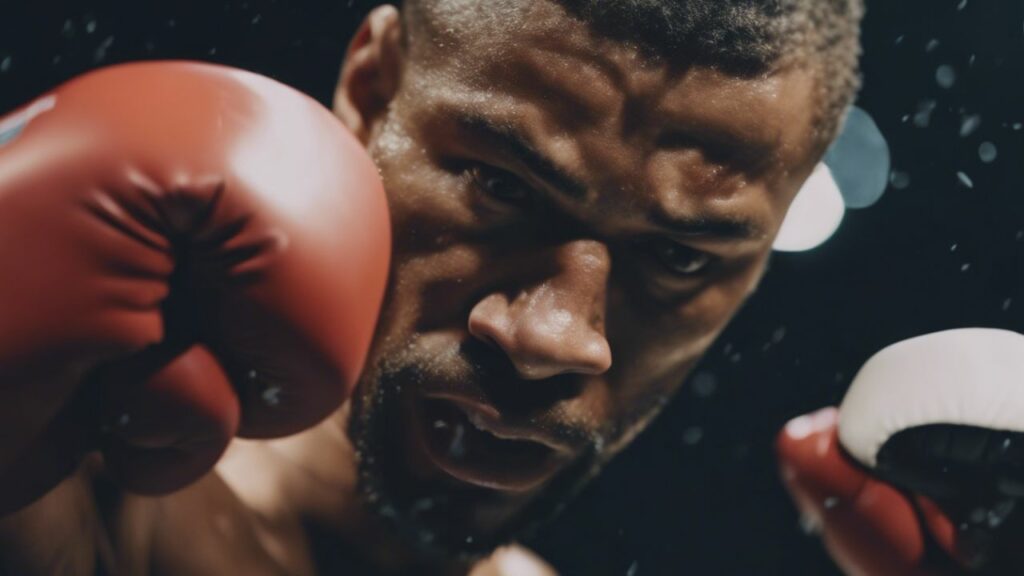
Boxing is an exhilarating sport that requires discipline, focus, and proper safety measures. One essential piece of protective gear that often gets overlooked is the mouthguard.
In the heat of the moment, you may wonder if you can spar without a mouthguard in boxing.
While it may seem tempting to skip this piece of equipment, it’s crucial to understand the risks involved in sparring without a mouthguard to protect your dental health and overall safety.
Using a mouthguard during sparring sessions is highly recommended for several important reasons. Let’s take a closer look:
- Increased risk of dental injuries: The primary purpose of a mouthguard is to prevent dental injuries, such as chipped teeth, broken teeth, and knocked-out teeth. Without a mouthguard, you expose yourself to a higher risk of these injuries, which can be painful, costly to treat, and potentially require extensive dental work.
- Protection against jaw injuries: Apart from safeguarding your teeth, a mouthguard also helps protect your jaw. It acts as a shock absorber, spreading the impact of a punch or blow across your jawbone. Wearing a mouthguard reduces the chances of sustaining jaw fractures or dislocations during sparring.
- Prevention of soft tissue damage: In addition to shielding your teeth and jaw, a mouthguard provides a layer of cushioning that helps protect your lips, tongue, and inner cheeks from cuts, lacerations, and bruising. These soft tissue injuries can be painful, hinder your eating or speaking ability, and require healing time.
- Mitigation of concussions: While a mouthguard primarily protects your dental health, it can also play a role in reducing the risk of concussions. The cushioning effect provided by a properly fitted mouthguard helps absorb and dissipate some of the impact forces that can lead to concussive injuries.
- Compliance with safety regulations: Many boxing organizations and training facilities enforce mandatory mouthguard usage during sparring sessions for the safety of all participants. Not only do you put yourself at risk by neglecting to wear a mouthguard, but you may also face consequences such as being banned from sparring or training.
It’s crucial to understand that a mouthguard alone cannot guarantee complete protection against all injuries. However, it significantly reduces the risks associated with sparring in boxing.
Investing in a high-quality mouthguard that fits appropriately ensures optimal protection for your dental health and overall safety during intense training sessions and competitive fights.
Remember, prioritizing your dental well-being goes hand in hand with enhancing your boxing skills.
So, never underestimate the importance of wearing a mouthguard when sparring in boxing. Take care of your teeth, jaw, and overall safety to enjoy the sport entirely.
Rules and Regulations on Mouthguards in Boxing
Boxing is a high-intensity sport that demands physical strength, endurance, and mental focus. Boxers must prioritize safety to prevent injury during training or in the ring.
One significant aspect of safety measures in boxing is the use of mouthguards.
We will explore the rules and regulations surrounding using mouthguards in boxing, highlighting their importance in ensuring safety and compliance.
Why Are Mouthguards Mandatory in Boxing?
To protect boxers from potential dental injuries and reduce the risk of concussion, mouthguards are mandatory in boxing—the mouthguard cushions absorb impact and distribute the force more evenly.
It helps protect the teeth and jaw and reduces the risk of lacerations to the lips, tongue, and cheeks.
Here are the essential rules and regulations regarding mouthguards in boxing:
- Mouthguards are typically required for amateur and professional boxing matches and training sessions.
- Mouthguards must be made of durable and impact-resistant material, such as medical-grade silicone or a custom-fitted mouthguard created by a dentist.
- The mouthguard should fit snugly and comfortably in the boxer’s mouth without inhibiting breathing or speech.
- Boxers must always wear their mouthguards in the ring or during sparring sessions.
- It is the responsibility of boxers and their trainers to regularly inspect the condition of the mouthguard, ensuring that it is in good shape and free from any damage.
- If a mouthguard becomes damaged or unfit, it should be replaced immediately with a new one.
- Boxers should be aware that failure to comply with the mouthguard regulations may result in penalties or disqualification from a match.
Benefits of Using Mouthguards in Boxing
- Reduced risk of dental injuries: Mouthguards provide a protective barrier for the teeth, reducing the likelihood of fractures, chipped teeth, or complete tooth loss.
- Minimized risk of jaw fractures: The cushioning effect of a mouthguard helps absorb the impact of punches, lowering the risk of jaw fractures.
- Prevention of soft tissue injuries: Mouthguards protect the lips, tongue, and cheeks from lacerations caused by accidental bites or blows.
- Decreased risk of concussion: While a mouthguard cannot entirely prevent concussion, it may help reduce the impact force transmitted through the jaw, potentially lowering the risk of concussive injuries.
Mouthguards are an integral aspect of safety measures in boxing. They offer protection against dental injuries, jaw fractures, and soft tissue damage and reduce the risk of concussion.
By adhering to the rules and regulations regarding mouthguards, boxers can create a safer and more compliant environment in the ring.
Remember, safety should always remain the top priority in any boxing activity. Stay protected, stay confident, and enjoy your time in the ring!
The Role of Mouthguards in Boxing
Mouthguards play a vital role in boxing, ensuring the safety and protection of the athlete’s teeth and mouth during intense sparring sessions.
These small yet crucial pieces of equipment are designed to absorb and distribute the impact of punches, minimizing the risk of dental injuries.
Let’s explore the importance, design, and level of protection mouthguards provide in boxing.
Importance of Mouthguards in Boxing
- Dental safety: Mouthguards act as a protective barrier, safeguarding the boxer’s teeth, gums, and jaw. By minimizing the risk of dental injuries, they help maintain oral health and prevent severe dental trauma.
- Shock absorption: The primary function of mouthguards is to absorb and distribute the impact of punches. They cushion the blows, reducing force transmission to the teeth and jaw.
- Stabilization: Mouthguards stabilize the jaw and help prevent it from closing suddenly, reducing the likelihood of jaw fractures and potential concussions.
- Confidence booster: Feeling safe and protected allows boxers to focus on their performance without worrying about potential dental injuries. Mouthguards provide boxers with added confidence in the ring.
Design and Types of Mouthguards
- Basic mouthguards: These mouthguards are pre-formed and ready to wear. They are affordable and readily available in sporting goods stores.
- Boil-and-bite mouthguards: These mouthguards offer a customizable fit. They are made from a thermoplastic material that softens when heated in boiling water. After cooling slightly, the boxer bites down on the mouthguard, allowing it to mold to the shape of their teeth and gums.
- Custom-fitted mouthguards: Considered the gold standard, custom-fitted mouthguards provide the best fit and protection. Dentists create these mouthguards by taking impressions of the boxer’s teeth and crafting a personalized guard using professional dental equipment.
Protective Features of Mouthguards
- Outer layer: Mouthguards typically have a sturdy outer layer that resists wear and tear, providing durability in the face of rigorous sparring sessions.
- Inner layer: The inner layer absorbs the impact of punches, dispersing the force evenly and minimizing the risk of dental trauma.
- Cushioning material: Many mouthguards utilize cushioning materials such as foam or gel that enhance the shock-absorbing properties, further protecting the boxer’s teeth and jaw.
- Secure fit: A well-fitting mouthguard ensures maximum protection by minimizing movement during sparring. It should comfortably cover the entire row of teeth and stay securely in place.
Mouthguards are essential for boxers as they offer dental safety, shock absorption, and stabilization during sparring sessions. Regardless of the type chosen, a well-designed mouthguard ensures a secure fit while providing optimal protection.
So, the next time you step into the ring, don’t forget to prioritize your dental safety by wearing a reliable mouthguard.
Expert Insights and Personal Experiences
Boxing is a combat sport that involves intense physical contact, and it’s crucial to prioritize safety to minimize the risk of injuries.
One vital protective gear in boxing is the mouthguard, aimed at safeguarding the boxer’s teeth, jaws, and oral health.
To understand the importance of mouthguards, let’s delve into expert insights and personal experiences from professional boxers, coaches, and trainers.
Professional Boxers: Why Mouthguards Are Essential
- World-class boxers highlight the significance of mouthguards in their training and professional fights. They consider mouthguards essential equipment to ensure their safety and protect them from dental injuries.
- Professional boxers have witnessed numerous instances where mouthguards have prevented severe injuries and minimized the impact of powerful blows to the face.
- Boxers, especially those in higher-weight classes, often throw heavy punches that can result in significant trauma to the mouth. Hence, mouthguards are regarded as indispensable for their overall well-being.
Coaches and Trainers: Mouthguards As Non-Negotiables
- Experienced coaches and trainers stress the non-negotiable nature of mouthguards in boxing. They enforce strict rules, requiring all their athletes to wear them during sparring sessions and fights.
- Coaches and trainers believe that every boxer should prioritize oral protection regardless of skill level. They understand the potential consequences of neglecting mouthguards and strive to educate their fighters about the risks involved.
- These experts recognize that mouthguards offer dental protection and contribute to overall performance. By reducing the risk of dental injuries, boxers can maintain focus and confidence without the fear of debilitating blows that may impact their performance.
Firsthand Experiences: Real Stories From the Boxing Community
- Numerous boxers and trainers have shared personal experiences that emphasize the importance of mouthguards in boxing. These anecdotes underline the potential dangers one might face without a mouthguard.
- Boxers have encountered painful consequences, from chipped or fractured teeth to more severe jaw injuries due to improper mouth protection.
- Many boxers stress how mouthguards have provided them with peace of mind, allowing them to spar and compete with confidence, fully focusing on their strategies and techniques.
Mouthguards are of utmost importance in boxing, as highlighted by professional boxers, coaches, and trainers.
Their expert insights and personal experiences underscore the significance of this protective gear in preventing dental injuries and enhancing overall performance.
Every aspiring boxer should prioritize wearing a mouthguard to ensure their safety and well-being in the ring.
Alternatives to Sparring Without a Mouthguard
Boxing is an intense sport that requires caution and proper safety measures to avoid injuries, especially when protecting your mouth and teeth.
While sparring without a mouthguard may seem tempting for some, it is essential to prioritize your safety and consider alternative training options that offer protection.
Here are some alternatives to sparring without a mouthguard:
1. Shadowboxing
Shadowboxing is an excellent alternative to sparring without a mouthguard, as it allows you to practice your techniques and footwork without getting hit by an opponent.
This solo training exercise will enable you to focus on your form, speed, and precision while minimizing the risk of dental injuries.
2. Bag Work
Hitting a heavy bag or other boxing equipment is another safe option to train without a mouthguard. This type of training allows you to practice your punches, combinations, and power without the direct impact of an opponent’s strike toward your face.
Just maintain proper form and technique to avoid strain on your jaw and teeth.
3. Mitt Work
Training with a coach or a training partner using focus mitts is a fantastic alternative to sparring without a mouthguard. With mitt work, you can simulate a realistic boxing experience by practicing your punches, timing, and accuracy while your partner holds the mitts.
This type of training offers a controlled environment and reduces the chances of accidental hits to the mouth.
4. Bodyweight Exercises
Incorporating bodyweight exercises into your training routine can help improve your strength, endurance, and overall fitness without sparring. Exercises like push-ups, burpees, squats, and jumping jacks are excellent options to develop your boxing-related attributes.
This type of training allows you to focus on building your fitness foundation while minimizing the risks of sparring without a mouthguard.
5. Defensive Drills
Working on defensive drills can help you improve your evasive skills and head movement without sparring. Practice slipping, ducking, blocking, and rolling techniques to enhance your ability to avoid punches and protect your mouth and teeth.
Focus on developing your defensive reflexes and maintaining a strong guard to minimize the chances of getting hit in the face.
6. Controlled Sparring
If you must spar without a mouthguard, consider engaging in controlled sparring sessions with trusted, experienced partners. Establish clear rules and boundaries, focusing on technical exchanges rather than heavy hits.
Ensure you and your partner prioritize safety and adhere to proper techniques and etiquette during these sessions.
Remember, your safety should always be a top priority. While these alternatives to sparring without a mouthguard can provide safer training options, using a mouthguard during sparring sessions is strongly recommended to protect your mouth and teeth from potential injuries.
Take the necessary precautions to enjoy the sport and improve your skills while minimizing risks. Stay safe, and keep up with your training!
Arguments for and Against Sparring Without a Mouthguard
Boxing is a sport that demands physical prowess, mental focus, and the right protective gear. One essential piece of equipment that often sparks debate among boxers is the mouthguard.
While some fighters swear by its necessity, others question whether sparring without a mouthguard is a feasible option.
We will explore the arguments for and against sparring without a mouthguard, considering factors such as comfort, communication, and safety.
Arguments for Sparring Without a Mouthguard
- Enhanced comfort: Many fighters argue that wearing a mouthguard can impede their ability to breathe and communicate effectively during sparring sessions, hindering their overall performance.
- Improved communication: Without a mouthguard, boxers can clearly articulate their instructions and strategies, leading to better coordination and a greater understanding between training partners.
- Increased awareness: Some fighters believe that going without a mouthguard forces them to be more mindful of defensive maneuvers and head movement as they become acutely aware of the consequences of getting hit without protection.
Arguments Against Sparring Without a Mouthguard
- Safety concerns: One of the primary arguments against sparring without a mouthguard is the risk of dental injuries. Mouthguards cushion the impact of punches, reducing the chances of broken teeth, jaw fractures, or lacerations to the lips and tongue.
- Long-term consequences: Dental injuries can be costly to repair and may have lasting effects on a boxer’s oral health. Additionally, the potential for concussions and brain injuries increases when the jaw lacks proper protection.
- Hygiene considerations: Mouthguards not only protect the teeth but also act as a barrier between the mouth and the environment, reducing the chances of infection from blood, saliva, or sweat exchanged during intense sparring sessions.
While sparring without a mouthguard may offer particular advantages regarding comfort and communication, weighing these benefits against the potential risks to safety and long-term oral health is essential.
Ultimately, the decision to spar without a mouthguard should be made in consultation with a coach or trainer, considering the individual’s skill level, experience, and personal preferences.
Tips for Choosing and Using a Mouthguard in Boxing
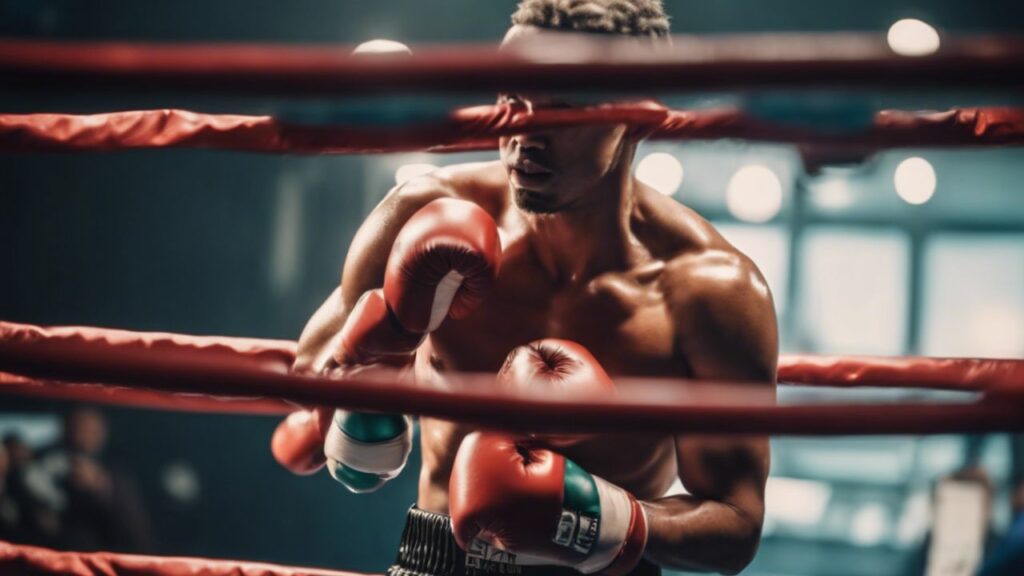
Boxing is a physically demanding sport that requires athletes to take every precaution to protect themselves from potential injuries.
Wearing a mouthguard during sparring is paramount to safeguarding against dental injuries, jaw fractures, and concussions.
Whether an amateur or a professional boxer, choosing and using the right mouthguard is vital to ensure your comfort and optimal performance in the ring.
Here are some tips to help you make the best choices when it comes to mouthguards in boxing:
Types of Mouthguards: Custom, Boil-And-Bite, and Stock
- Custom mouthguards: These are the most expensive but provide the best fit and highest level of protection. They are custom-made by a dentist to fit your mouth perfectly, offering superior comfort and stability.
- Boil-and-bite mouthguards: Affordable and readily available, they can be molded to fit your teeth and gums after heating them in boiling water. While not as precise as custom mouthguards, they still provide a good fit and protection.
- Stock mouthguards: These are pre-formed and come in standard sizes. While affordable and easily accessible, they offer the least comfortable fit and provide minimal protection. It is recommended to avoid stock mouthguards if possible.
Key Factors to Consider When Choosing a Mouthguard
- Comfort: A mouthguard that doesn’t fit properly can be uncomfortable and distracting during sparring. Look for a mouthguard that feels snug but not too tight, allowing you to breathe and talk comfortably.
- Protection: The primary purpose of a mouthguard is to protect your teeth, gums, and jaw from impact and potential injuries. Opt for a mouthguard that provides sufficient thickness and cushioning to absorb and disperse the force of blows.
- Durability: Boxing can be intense, and mouthguards can undergo significant wear and tear. Choose a durable mouthguard that can withstand long training sessions and multiple sparring sessions without losing its shape or effectiveness.
- Ease of cleaning: Proper hygiene is crucial to prevent bacterial growth and maintain the longevity of your mouthguard. Look for a mouthguard that is easy to clean and preserve, preferably one that allows quick rinsing and drying.
Tips for Proper Use and Care of Your Mouthguard
- Before each use, inspect your mouthguard for any signs of damage or wear. If you notice any tears, cracks, or loose areas, replace them immediately to ensure continued protection.
- Clean your mouthguard thoroughly after each use. Rinse it with cold water to remove debris and follow up with a gentle brush using toothpaste or mild soap. Rinse again and allow it to dry completely before storing it in a clean case.
- Store your mouthguard in a well-ventilated case to prevent moisture buildup and the proliferation of bacteria. Avoid exposing it to extreme temperatures that can warp or damage the material.
- Replace your mouthguards regularly, as they tend to wear out over time. Depending on the frequency of use and the level of impact, consider replacing your mouthguard every six months to one year.
Choosing and using a mouthguard in boxing should never be taken lightly. The right mouthguard ensures your comfort and protection and enhances your performance in the ring.
You can select a mouthguard that meets your needs by considering factors such as fit, protection, durability, and ease of cleaning.
With proper care and maintenance, your mouthguard will continue providing the necessary shield against dental injuries, enabling you to spar confidently.
So, prioritize your safety and unleash your boxing potential with a reliable, well-fitted mouthguard.
Conclusion
Wearing a mouthguard while boxing protects your teeth and oral health. While some may question its necessity, the potential risks and consequences of not wearing a mouthguard are not worth ignoring.
The sport of boxing entails powerful punches and substantial impacts, which can easily cause dental injuries such as shattered teeth, broken jaws, or lacerations to the lips and tongue.
A mouthguard acts as a cushion, absorbing the impact and distributing the force to minimize the risk of serious damage. It also helps to stabilize the jaw and reduce the risk of concussions.
Remember, prevention is always better than treatment, and investing in a good-quality mouthguard is a small price to pay for long-term dental well-being.
So, before stepping into the ring or sparring, prioritize your dental safety by wearing a mouthguard.

